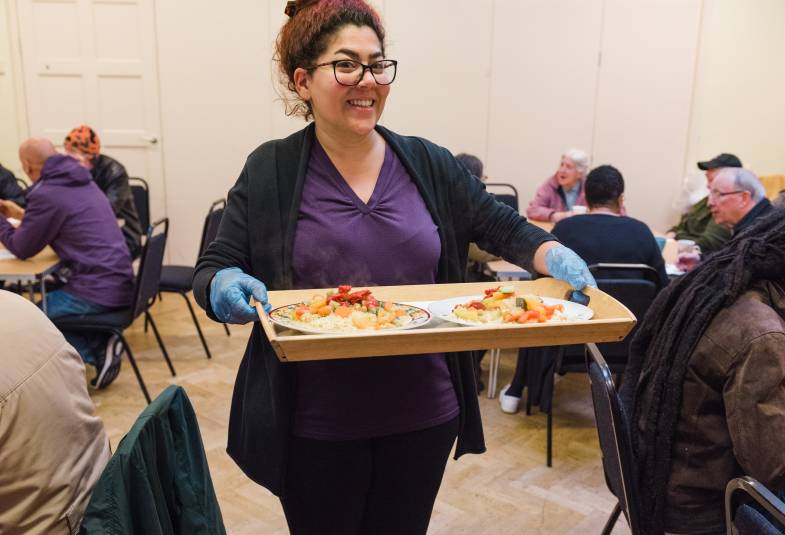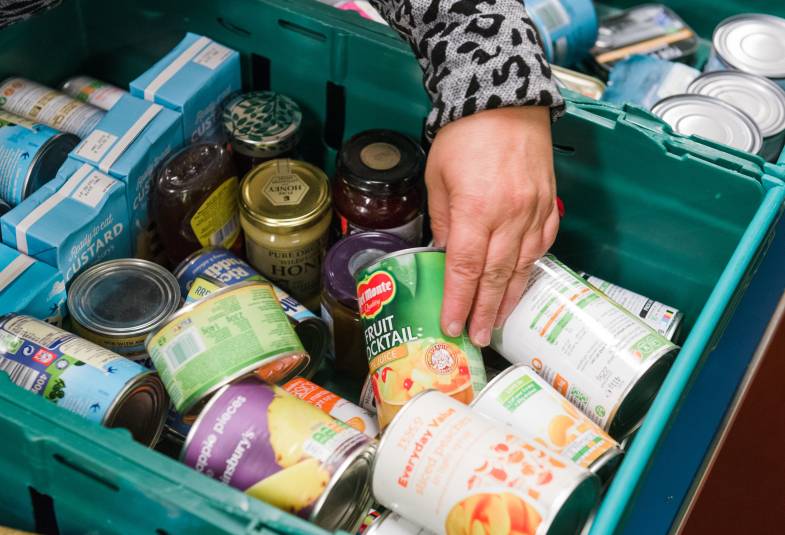
If you have a faith that is deep-rooted and you really believe this faith that you have, it will overflow into what you do.
Unconditional love leaves no option but to reach out to help others. We call it volunteering, but it is in fact extraordinarily involuntary. These points should also be born in mind:
- The needs of the volunteer should not be forgotten. Human feelings are important; appreciation, thanks and recognition are valued by anyone
- Often initiatives are driven by a small number of individuals, and the time comes when they can't go on anymore. Volunteers should not be pushed to the limit or made to feel guilty when their initiative draws to a close because there's no one to step into their shoes
- Succession plans are great if they can be arranged, but voluntary initiatives often have a life cycle of their own; they're born, they live, they die - and another is born somewhere else. Accept this and allow it to happen naturally
- Similarly, let the vocation of the volunteer run its course. Respect their limits and the extent of commitment they originally signed up for
- If the initiative is really meeting a need, but there are no volunteers who can afford to give up their time without remuneration, consider raising funds to pay them. Read more about funding sources.

Please ensure you've read the Safer Recruitment and People Management guidance from the National Safeguarding Team.
Define their role
Write down precisely why you need volunteers. How much time do you expect them to give? Write down clear descriptions of the required tasks if you can, so that people know what they are volunteering for and you know how to assess the suitability of potential volunteers.
Volunteer policy
Think about documenting a policy for volunteers that can be shared with them, setting out your responsibilities to them and theirs to you.
Recruitment
Think about where you will advertise for volunteers. It may depend on what you are recruiting for and, for example, whether it is to meet a short term emergency or provide a long term service. Consider social media, as well as posters, leaflet drops, local magazine/newspaper ads. Some job-search websites have volunteer sections too.
Selection
The process needs to be rigorous and thorough without being unnecessarily bureaucratic. Restrictions are justified in certain circumstances, but it is important to be aware of good practice in equal opportunities. Your diocesan social responsibility adviser could offer guidance on the distinction between reasonable and unreasonable restrictions when selecting volunteers. Your diocesan safeguarding officer can help you identify particular restrictions and the screening necessary (e.g. Disclosure and Barring Service checks), in relation to working with children and vulnerable adults. The clearer the pre-information about what will be expected (written or oral), the more likely it is that appropriate people will put themselves forward. Although it does not need to be a very formal process, it is important for both sides to be able to assess the suitability of the individual for the role.
Budget
Include the costs of using volunteers in your budget, to cover the possible outlay. There may be set-up costs, such as the provision of a desk, computer or phone line, and there will be running costs such as reimbursing expenses, insurance, training and support, and management time.
Management, support and supervision
Support of volunteers requires consideration of their needs, including:
- Adequate induction arrangements
- Someone they can turn to for immediate help or advice
- Information about the project
- Being thanked and valued
- Being involved in wider aspects of the project, in policymaking and reflection both on past performance and future direction
The level of supervision will depend upon what they do, how long they have been doing it, how experienced they are. The effectiveness of both support and supervision will be linked with wider policies, internal communications and working practices, including relationships between volunteers and between them and staff and trustees.
Insurance, health and safety
You are legally liable for your volunteers and clients, which means taking out suitable insurance (public liability, employee liability, personal accident and professional indemnity) and being aware of the relevant legislation. Under the Health & Safety at Work Act 1974, you must have a health and safety policy. It should include reference to volunteers and they should have a copy. Your local authority or diocesan social responsibility adviser may have a template policy that you can adapt.
Training
Training can be informal or formal and accredited; internal or using outside agencies. It might be a matter of keeping volunteers up to date with what is happening within the project or in the policy context they are working in. It might focus on imparting skills, such as listening or IT skills and, for some, there may be the possibility of volunteers getting NVQs or other qualifications. What is appropriate will depend on the nature of the volunteers, what they are doing and how long term they are.
Expenses
These might include things like travel expenses, subsistence for those working a full day, uniforms or protective clothing, training events/conferences. The process for claiming expenses needs to be simple, clear and consistent for all volunteers. Payments should be regular, and sometimes in advance for people on low incomes. Beware of making ex gratia payments that could create tax, benefit or national insurance problems.
Provision
As well as providing expenses, in some projects, you may need to provide guidelines, for example confidentiality guidelines, or information about protection issues. Conversely, volunteers have a right to information, as well as safeguards, if their own safety might be at risk. If you’re working with a partner charity, they can help you with this. Alternatively, ask your diocesan social responsibility officer.
Inclusion
Volunteers need to feel that they are part of the wider team, that they are trusted and their role is appreciated. Demonstrating this may entail more than treating individuals respectfully, for example, having places for volunteers on the management committee and involving them collectively when there are major decisions to be made.
Calculating their contribution
It is helpful to have evidence for funders of the in-kind or cash value of volunteers. This might be calculated on the basis of the minimum wage hourly rate, or the rate for the job of roles such as lawyers, counsellors or drivers, or volunteer time could be computed in terms of full-time equivalent staff. Alongside this quantitative information, there can be commentary on to roles of volunteers (including trustees) and what they bring to the project (enabling greater reach, work with specific client groups, more activities, etc).